Careers
Our team of administrators, environmental educators, naturalists, and interns are united by a passion for promoting environmental education and stewardship.
Jobs are posted as they become available. Summer positions are typically posted by early December.
Please check our Internships page for additional upcoming opportunities. Thank you for your interest in a career with the Center for Alaskan Coastal Studies!
Current Openings
Seasonal positions for spring and summer 2026 have been filled.
Upcoming open positions will be posted in this space as they become available.
Seasonal positions for 2027 will be posted in the fall/winter of 2026.
When applying for a position, please follow listed application instructions, and ensure attached application materials are in PDF format.
Applicant FAQ
-
Because we begin our seasons with ~2 weeks of paid training, we are firm with our start date. For the summer season (June-August), we can usually negotiate end dates provided the discussion happens as early as possible. Our spring season (April-May) is short and very busy, so it is important that applicants are able to commit to the whole season.
-
Our staff positions are for people over the age of 18. Our traveling internship, called the Community Coastal Experience, is also for people over 18. For those under 18, we have paid High School Internships.
-
We’ve tried to capture some of our seasonal positions’ nuance in our titles, but these words may mean different things to you. The following is a basic explanation of each role to help you understand each job description:
Naturalist - This role typically involves more interpretation for guests, especially adults, but may include kids. This often looks like leading programs like guided educational hikes or tide-pooling. For some positions this may include collecting basic scientific monitoring data, and/or more hours maintaining facilities (i.e. trail maintenance and updating interpretive displays).
Educator - This role works primarily with kids on our environmentally-themed camps, field trips, and programs. This involves teaching about local ecology in a very hands-on, place- and inquiry-based way. While leading these programs, staff are responsible for keeping kids safe and attending to basic needs and behavior support. In the case of our overnight camps, staff are the primary point person for camper needs.
Naturalist Educators - This role leads our educational summer camps and attends to youths’ needs and behavior support. They also lead nature tours for adults and youth, and may assist with monitoring and data collection.
Camp Counselor - This role works specifically with our Day Camp, where staff facilitate environmental education and exploration programs while attending to young camper’s needs. The title of “counselor” reflects the importance of fun, play, social emotional learning, and behavior support.
Support Counselor - This role is specifically for Day Camp and is focused on behavior support. See job description for more details.
Co-Leads - This role is specifically for the Community Coastal Experience. See job description for more details.
Coordinator - This role not only helps lead our programs, but also coordinates their program's functions and/or associated facility. They also supervise their programs’ staff.
-
General Housing Information:
Coastal Studies provides furniture, basic appliances, and other sundries for a functioning home. For more specifics, see each locations’ details below. Our housing units are the “Office Apartments,” “North Wynn,” and the “A-Frame.” The quality of different items may vary, as many are secondhand and/or see ample use from season-to-season.
Once hired, staff who need housing fill out a survey and answer questions about their roommate preferences. Our staff pair roommates based on these responses. We try to avoid housing staff from the same program together, but acknowledge that is not always possible. Single rooms are rarely possible and not guaranteed. We try to facilitate housing check-ins to create a space for staff to address needs.
Year round staff (both remote and in-person) are not eligible for CACS-provided housing. If someone stays on staff beyond October programs, or takes on a year-round position, they must find their own housing.
We are unable to house anyone not directly hired to work with our organization. This includes partners, spouses, and children. Pets are not permitted in CACS housing. For family or pet-friendly housing, we recommend looking online for rental units in Homer.
Office Apartment:
The Office Apartment is located on the second floor of our Headquarters in “downtown” Homer, and is within walking distance to shops, restaurants, groceries, and other amenities. There are three bedrooms, which typically house two or three staff members each. Each room has 2-3 beds, desks, and various shelves and dressers to store belongings. The apartment also has one full bathroom, a laundry room, general storage space for program supplies, and a small combined kitchen and living room.
All bedding and towels are provided. Kitchen appliances include a fridge, freezer, electric stove, oven, microwave, toaster, dishwasher, coffee pot, and hot water kettle. It’s fully stocked with utensils, dish-ware, and cooking supplies.
Sometimes staff come up to the storage space in the apartment to access program supplies during work hours. Because of the way noise travels in the building, you will likely hear kids or families outside and are asked to be mindful of upstairs noise above the office.
North Wynn
The North Wynn is a historic home located across the street from the Wynn Visitor Center; about a 15-minute drive from town. On the bottom floor, there is a laundry room, garage, and auxiliary apartment space hosting two beds, closet space, a full bathroom, and a small kitchen. The main floor has a shared kitchen, large living room and dining table, a bathroom, closet, and a bedroom for two staff to share. The top floor has two bedrooms, both of which have their own bathroom and closet space. Each of these rooms house 2-3 staff.
All bedding and towels are provided. Kitchen appliances include a fridge, freezer, electric stove, oven, microwave, toaster, dishwasher, coffee pot, and hot water kettle. It’s fully stocked with silverware, dish-ware, and cooking supplies. This housing is adjacent to the Wynn Nature Center protected land and hiking trails, and is in a rural environment.
A-Frame
The A-Frame is a cozy one-room rustic home called a “Dry Cabin” in Alaska because there is no running water. This is not an uncommon living situation in Alaska. There is electricity and a space heater to provide heat. It also contains a fridge, stove, and other simple appliances. All bedding and towels are provided, as well as silverware, dish-ware, and cooking supplies. Water must be hauled in gallon jugs from town (jugs are provided). There are no showers or flush toilets, but there is an outhouse on-site (again, somewhat common in Alaska). The downstairs is an open floor-plan with combined kitchen/living/dining space. The upstairs sleeping loft is accessed via a ladder. This housing is a 10-15 minute drive from town. It is adjacent to the North Wynn property and the Wynn Nature Center’s protected land and hiking trails.
-
Unless otherwise noted, our seasonal positions are full-time. We do our best to have staff average 80 hours per two-week pay period.
Due to the nature of our programming, some positions may have more irregular hours than others, and so some weeks may be over 40 hours. When this happens, we try to build in more off-time the following week to balance the hours and ensure that staff get a break. Positions with more irregular schedules will have that noted in the job description.
-
Staff are responsible for getting themselves to Homer. If you are planning to fly in from out of state, the easiest thing to do is to book a flight to Anchorage. From there, you can fly, take a bus, drive, or carpool to Homer. Aleutian Airways is currently the only regional airline with flights from Anchorage to Homer. Check their website to find their flight times. The city of Kenai is about 1.5 hours away from Homer and is another airport option; if you can arrange a ride to Homer with a friend or on the Bumps Bus. Finally, the Alaska Bus Company and Red Eye Rides run daily bus routes between Anchorage and Homer. Flights to Homer are often unreliable and expensive—we recommend a bus instead.
We are unable to provide travel stipends. However, if the cost of travel is a significant barrier to your accepting a position, please let us know so we can help find solutions.
We do not expect staff to bring their own vehicles; however, having your own vehicle allows you more freedom to explore in your off-time. Rural Alaska does not have good public transportation; accessing hiking, other nearby towns, or events around the state typically require a personal vehicle. CACS maintains a few organizational vehicles that are used for getting to-and-from housing and work sites. Their primary use is for work-related needs, and organizing schedules around their use takes collaboration among staff. CACS vehicles are not to be used for personal trips outside of town.
Some of our seasonal staff drive to Alaska—from both the East and West coast—and find that a positive experience. If you are interested in doing the drive, check out the Milepost for route options, hazards, and refueling locations. If you have specific questions, we can connect you with a staff member familiar with the drive. If driving the whole way seems daunting, you might also consider booking passage on the Alaska Marine Highway System (the state’s ferries).
-
Our organization wants to support all staff in learning about our local environment and education philosophies. We invest in pre-season staff training, and occasional additional learning opportunities throughout the summer that staff can participate in based on their job’s relevancy and availability. Leadership positions, primarily coordinators, are allotted $200 in Personal Professional Development funding to be used pre-season or during their contract for learning opportunities relevant to their job (i.e. a leadership skills course, or a formal training on “risky play”). Upon hire, this Professional Development can be approved by your supervisor.
Coastal Studies focuses as much on our staff experience as we do participants’. We foster a tight-knit staff with a paid training retreat, intentionally established staff living dynamics, staff gatherings, and by emphasizing a precedent for direct and transparent communication.
During the height of Alaskan summer business and ensuing unpredictability, we support staff by compensating them with paid sick/mental health days (~1 day/month), as well as occasional opportunities within the job for fun and restorative activities. While we are unable to provide paid holidays for seasonal staff, we work to support staff by scheduling around holidays that are important to them with ample advance requests.
Our pay rates for seasonal staff are as follows:
$19/hour for naturalists, educators, and camp counselors with shared housing ($22/hour without housing)
$20/hour for support staff with shared housing ($23/hour without housing)
$21/hour for seasonal coordinators and CCE Co-Leads with shared housing ($24/hour without housing)
Additional benefits include:
Discounted or free registration for CACS programs and guest passes.
Limited personal use of facilities and resources (i.e. gardening supplies and outside group event space).
CACS apparel.
Re-hire bonus for returning staff or those working consecutive Spring and Summer seasons.
Pro-Deals access with your contract and 1-year free membership to the American Camp Association.
-
We do not have the capacity to support the acquisition of a US work visa due to our narrow hiring window. If you are not a United States citizen and have already secured your visa, we are happy to consider your application.
-
We highly recommend you closely examine our job descriptions and review each location’s page on our website to see if a job and/or facility are a good fit for you. We can make reasonable accommodations that do not cause undue hardship on our organization or programs.
During the interview, as we are getting to know each other, there will be opportunities to ask us questions and make sure the job feels like a good fit for you and your needs. You are welcome to ask about accommodations at that time, along with any other questions you may have.
After you have received an offer—before accepting the position—we encourage you to discuss any needed accommodations with your supervisor. You’re also welcome to email or call our office prior to an interview to ask any questions you may have.
-
Our positions that work closely with kids require up-to-date Youth Mental Health First Aid (YMHFA) or equivalent certifications. Our programs that work with adults and families do not require it, but we highly recommend either YMHFA or Adult Mental Health First Aid certifications. Please see the job descriptions for that requirement. Staff may be hired without this training/certification under the condition that they will pursue this training before the season starts.
Early support has a high impact; we want our staff equipped with these basic support skills for their own confidence, and the wellbeing of our community. These courses are typically 8 hours long, and are offered regularly for free and virtually. We recommend Mental Health First Aid through the National Council for Mental Wellbeing, which offers a 3-year certification. We are also open to considering comparable training or advanced experience in subjects such as de-escalation, keeping people and participants safe, and coaching skills. The Crisis Prevention Institute and the Institute for Wild Med offer similar trainings.
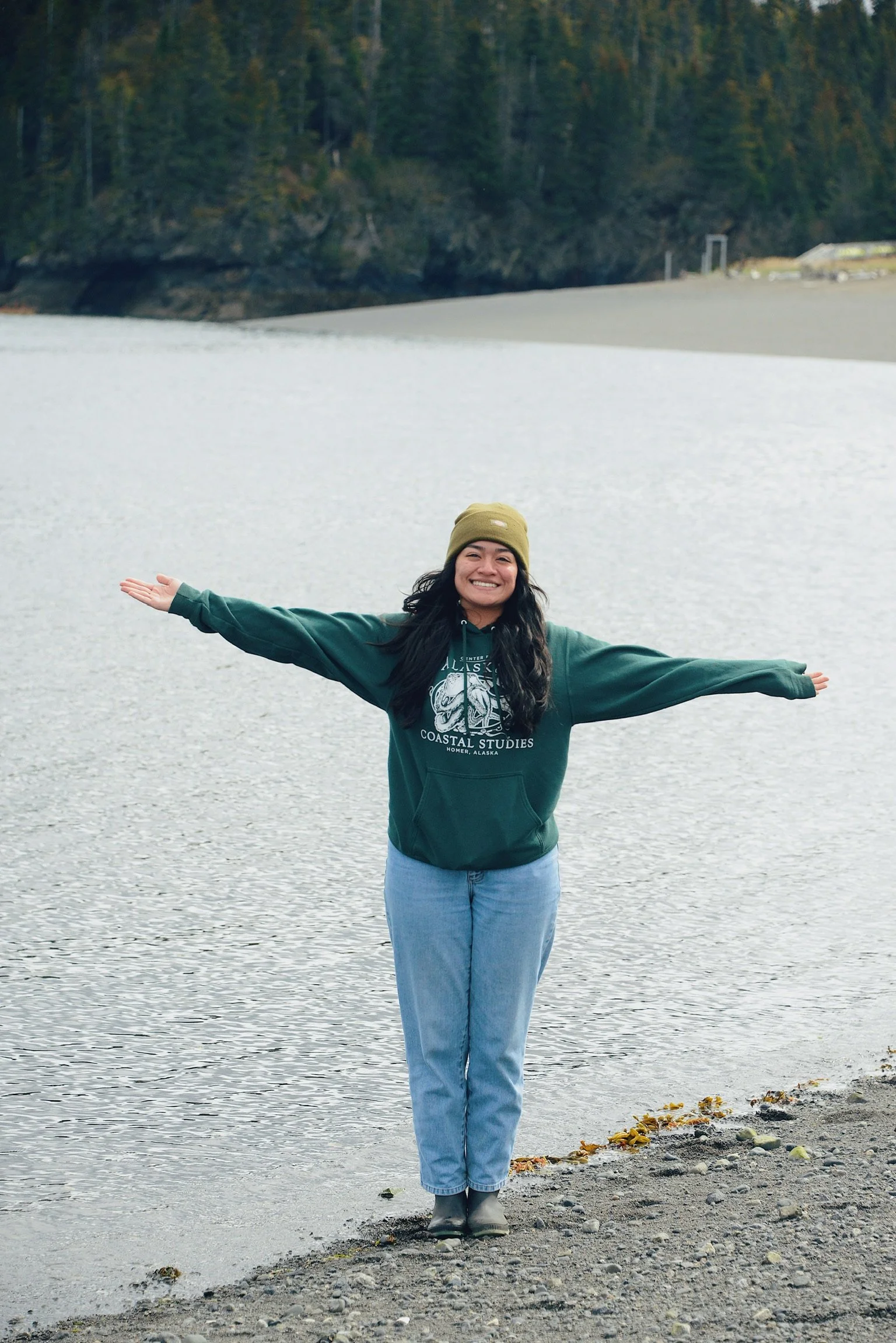
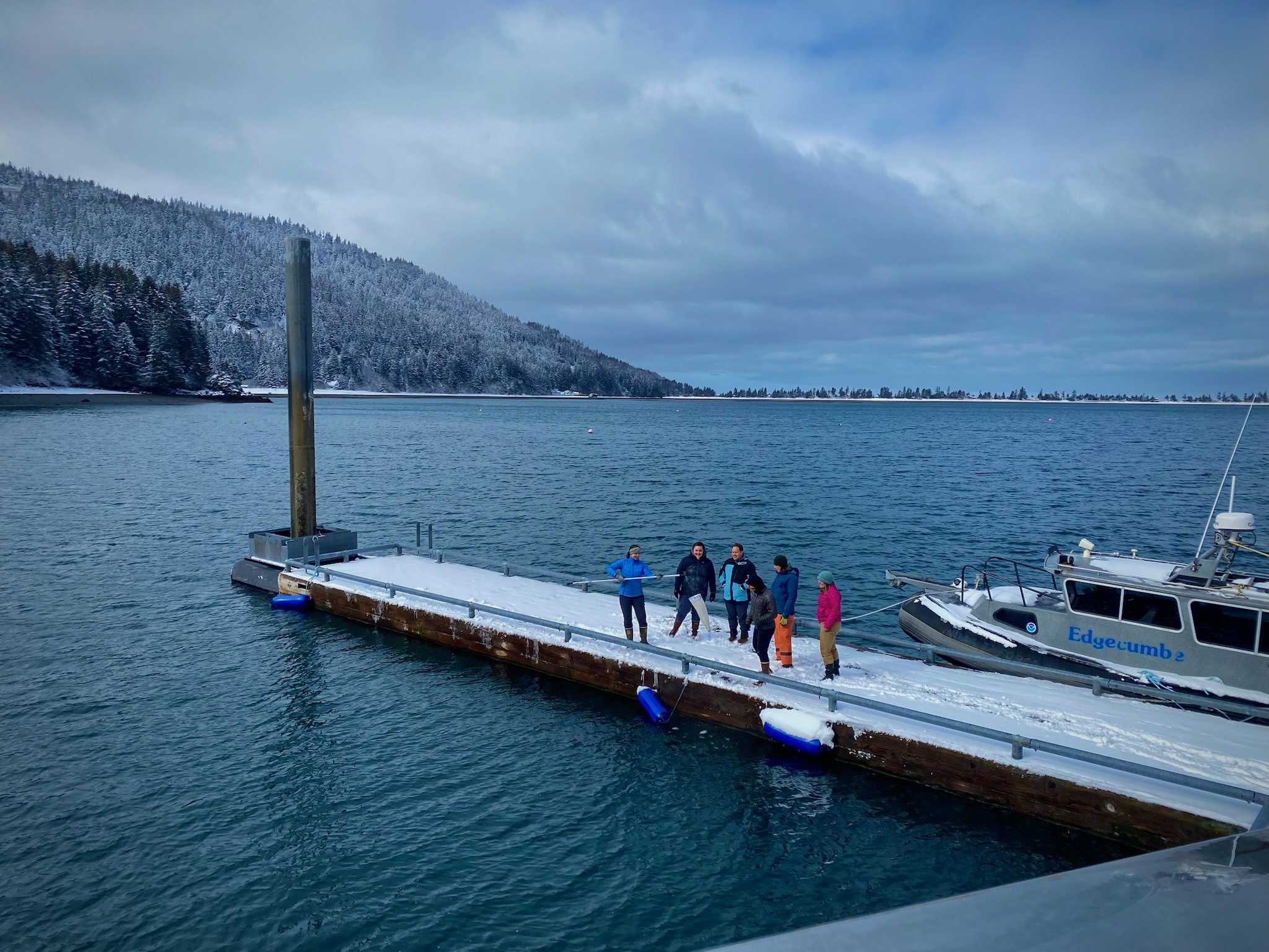
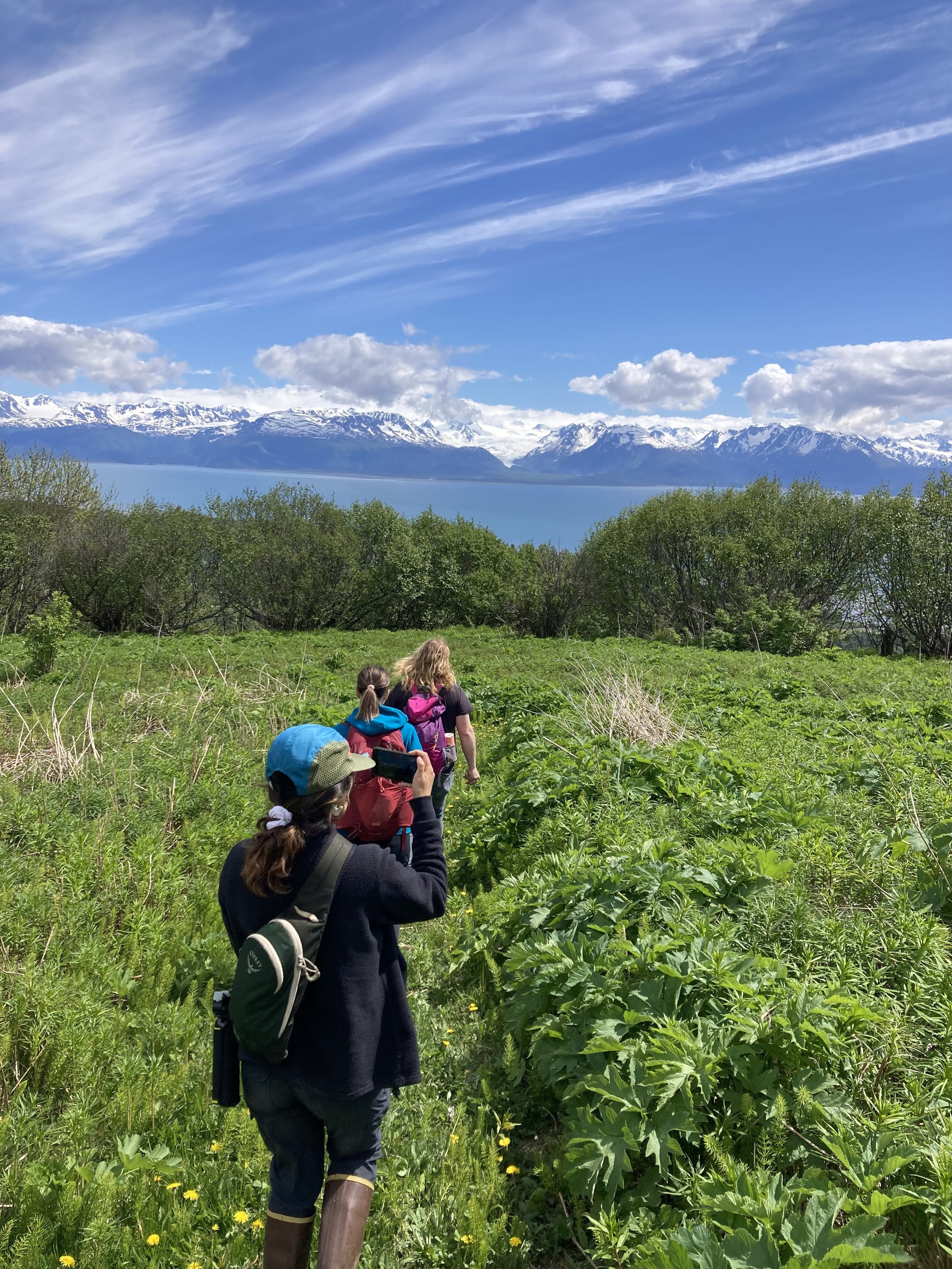

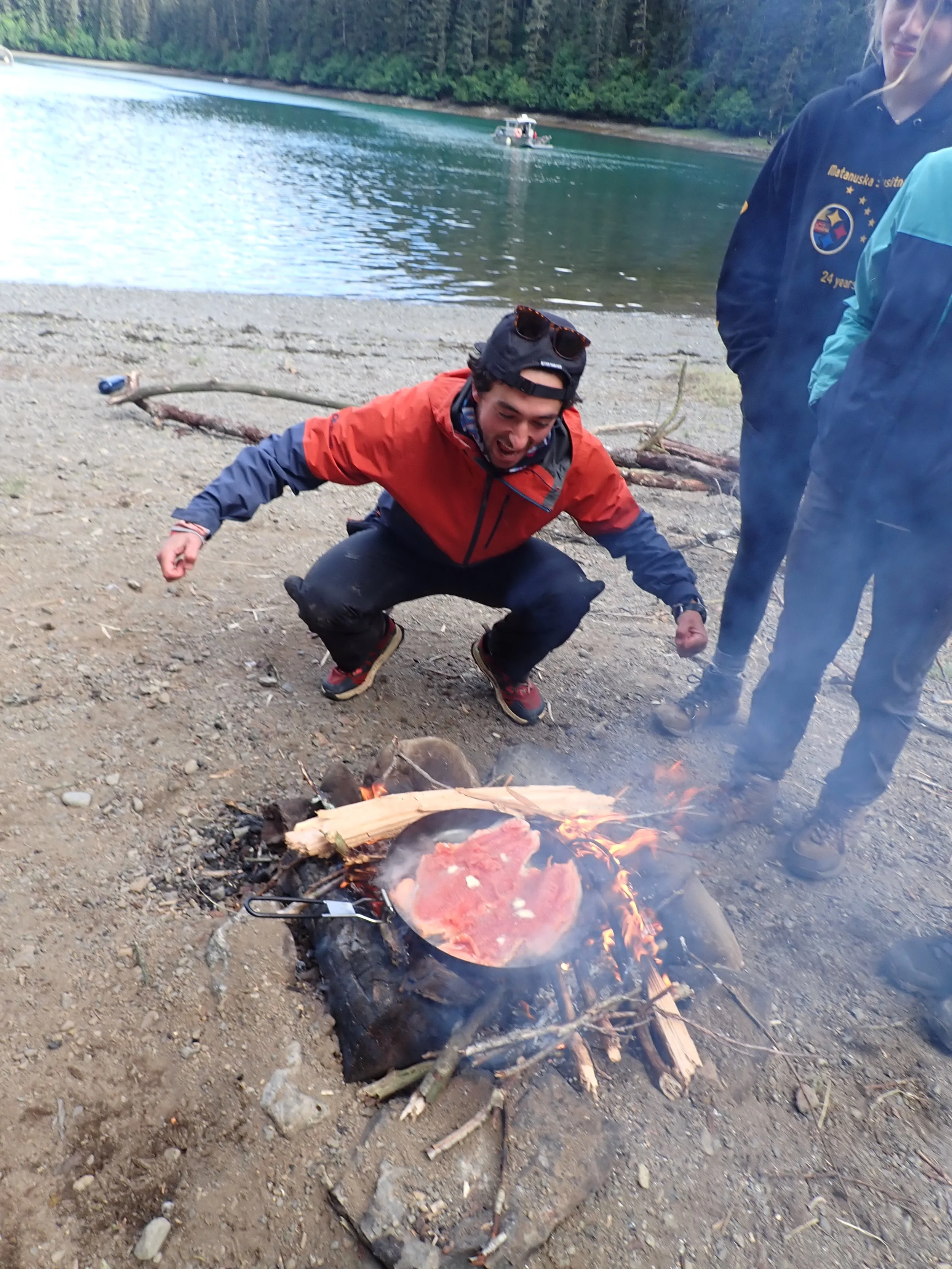
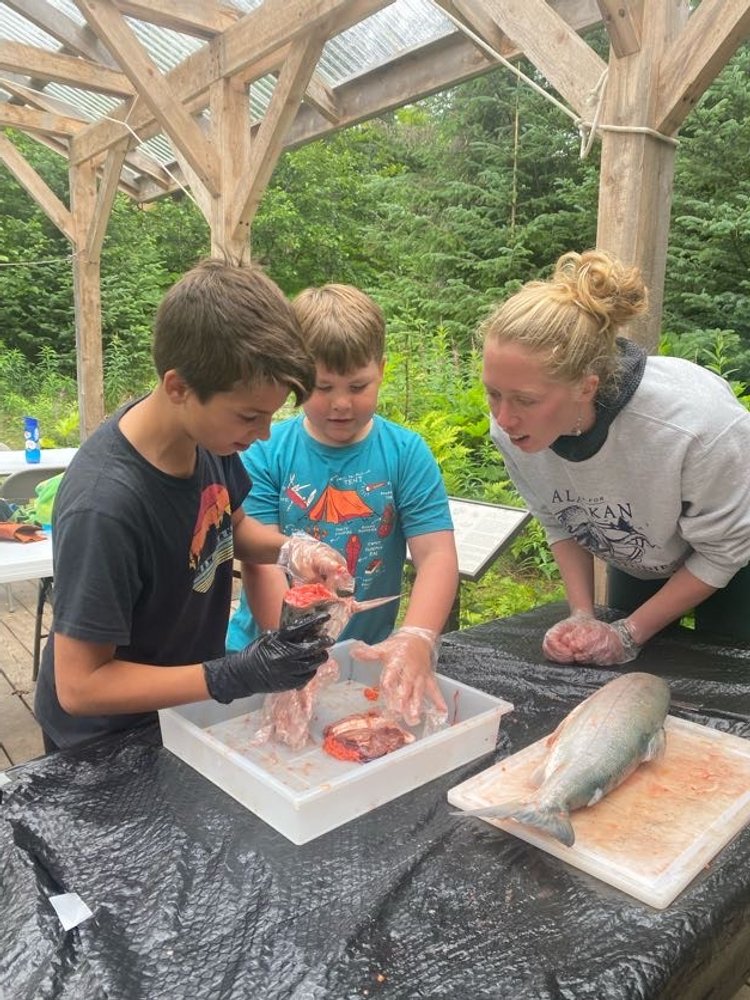

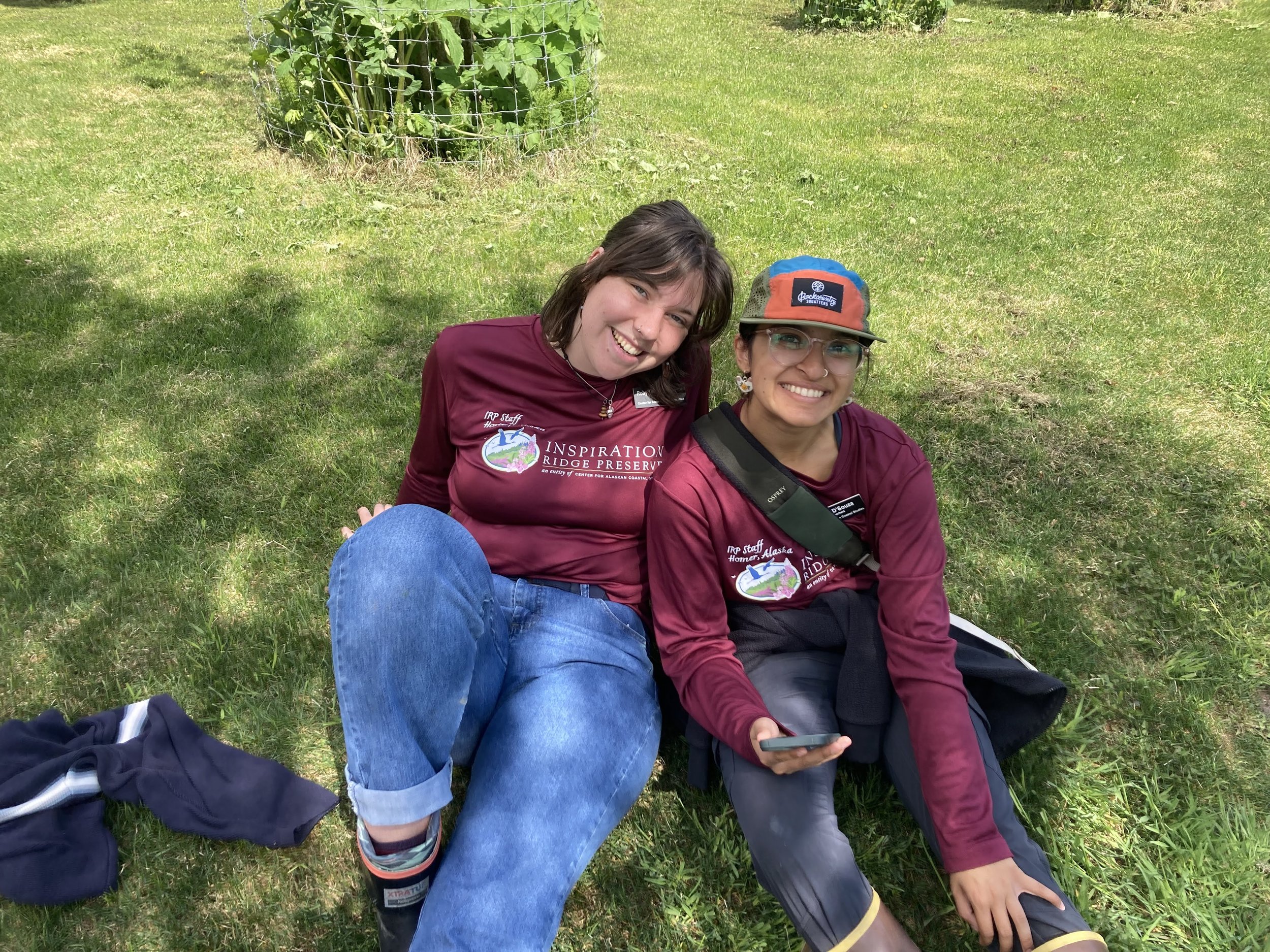
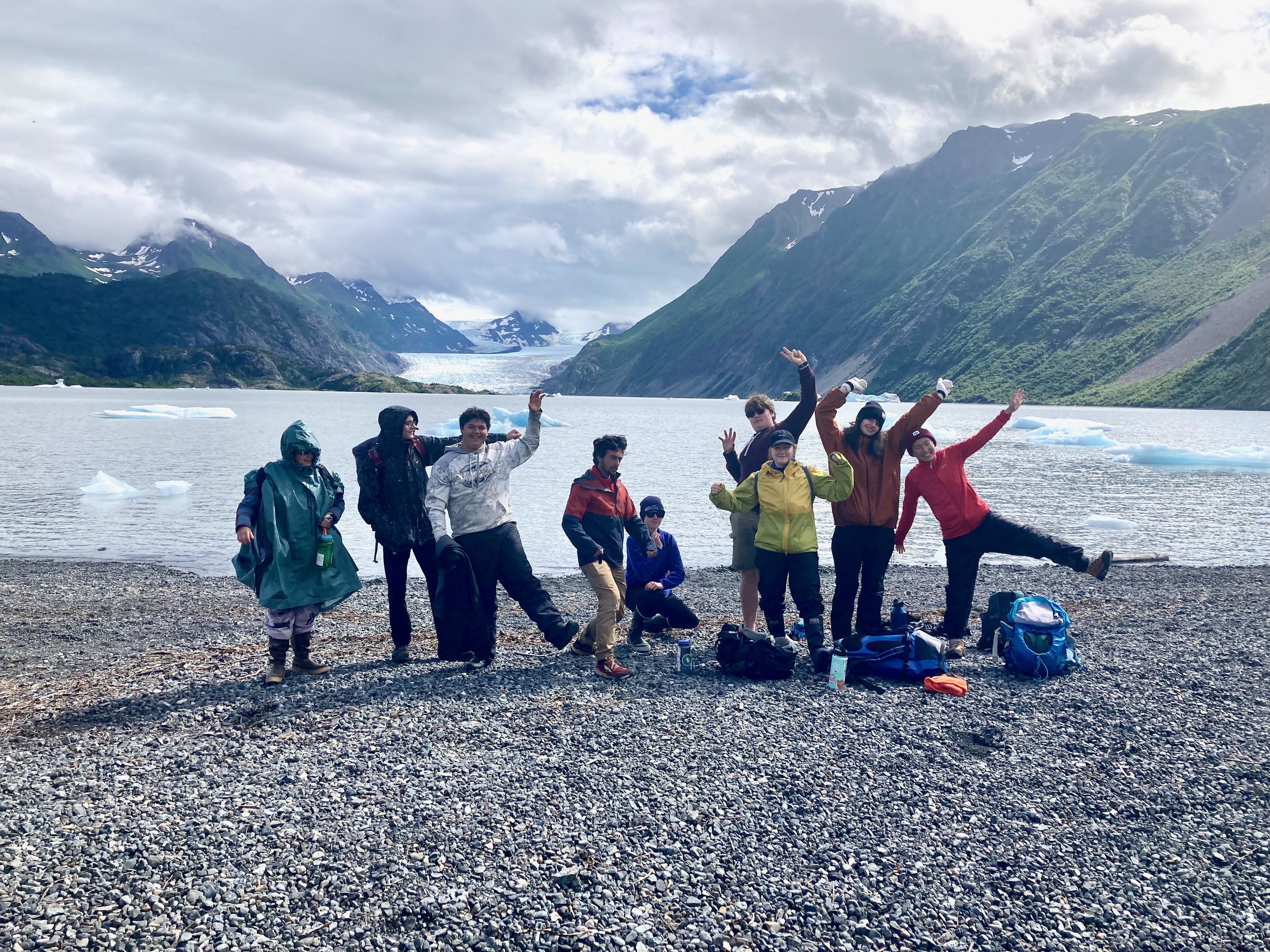
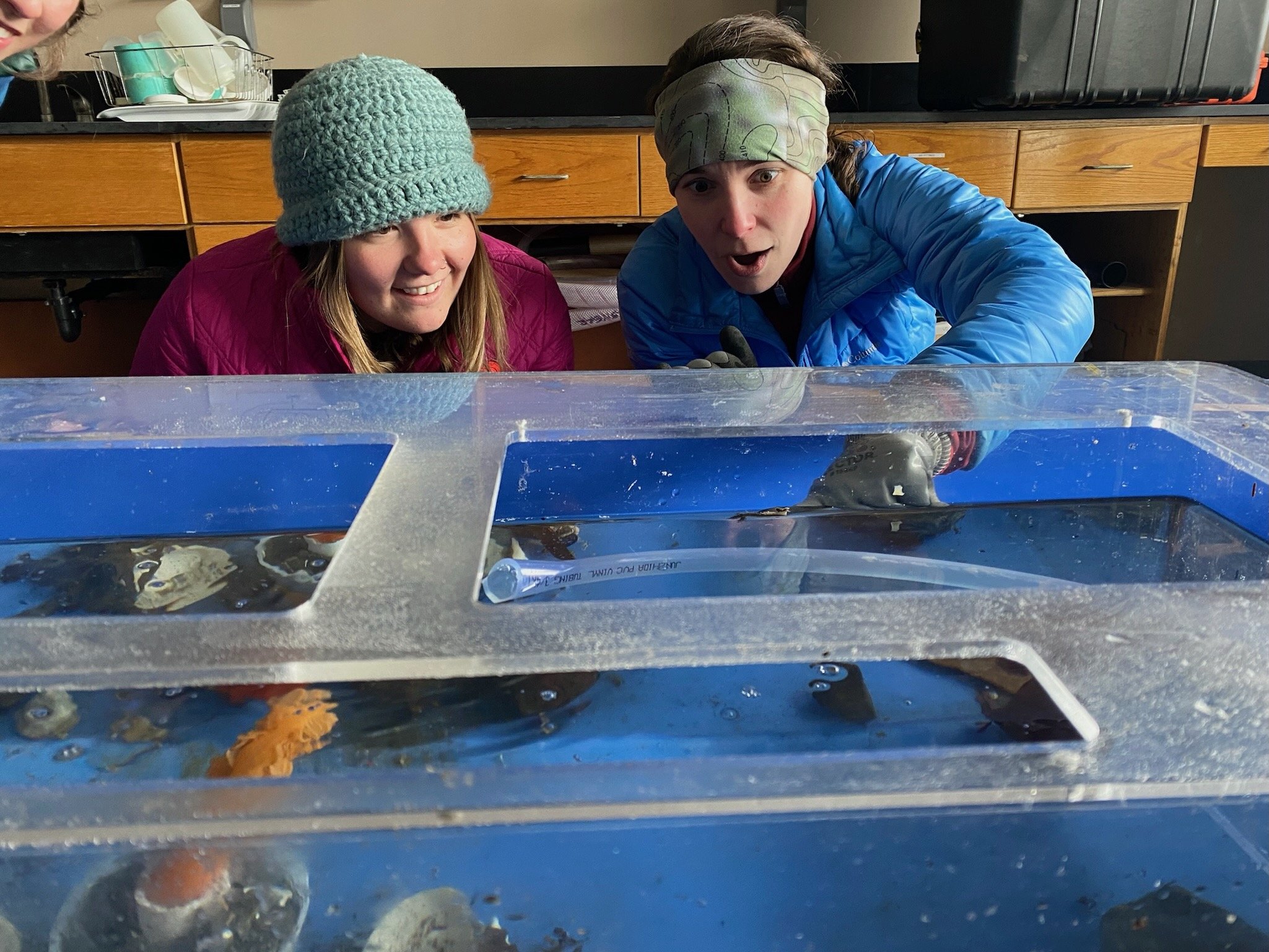
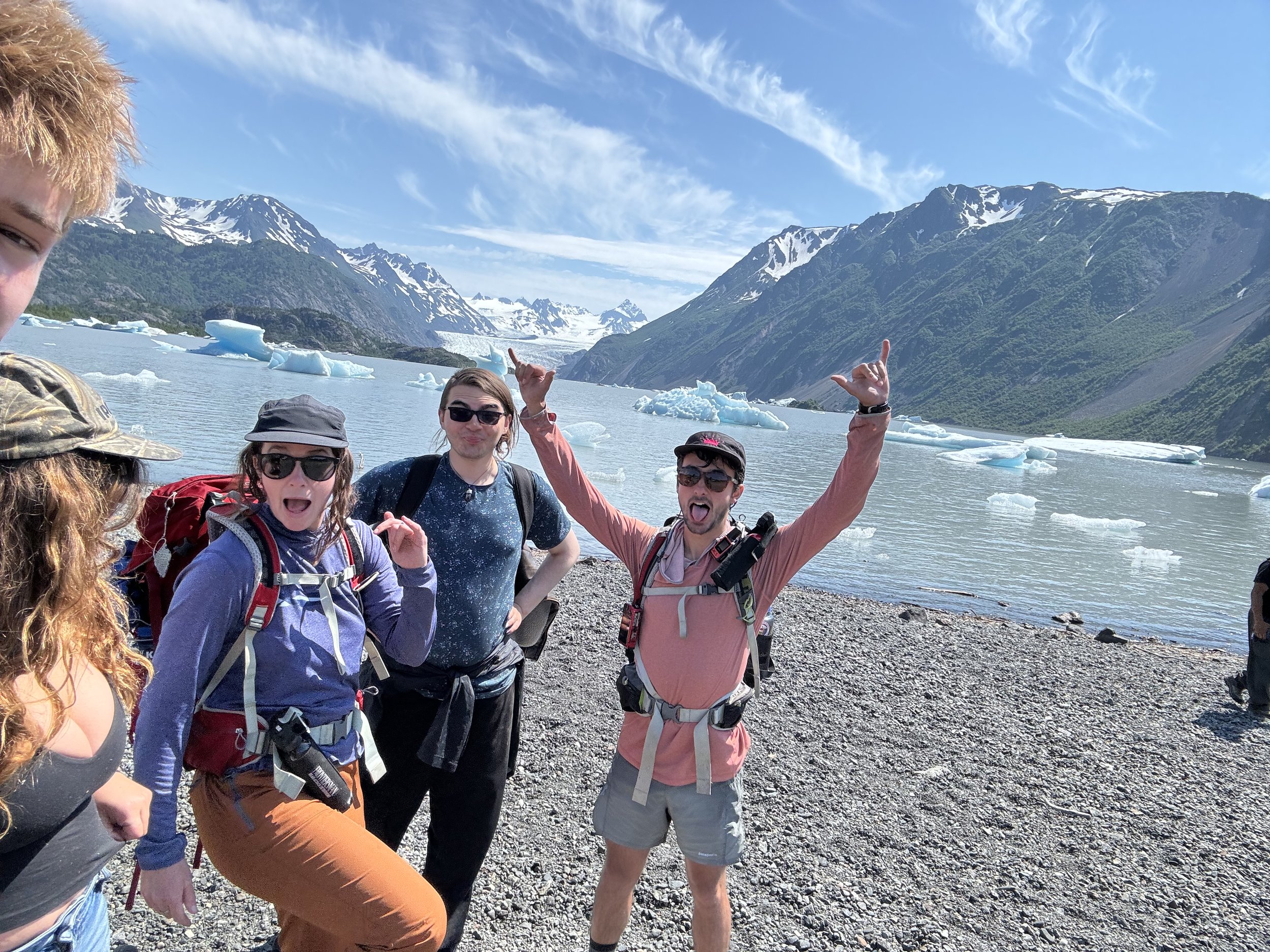

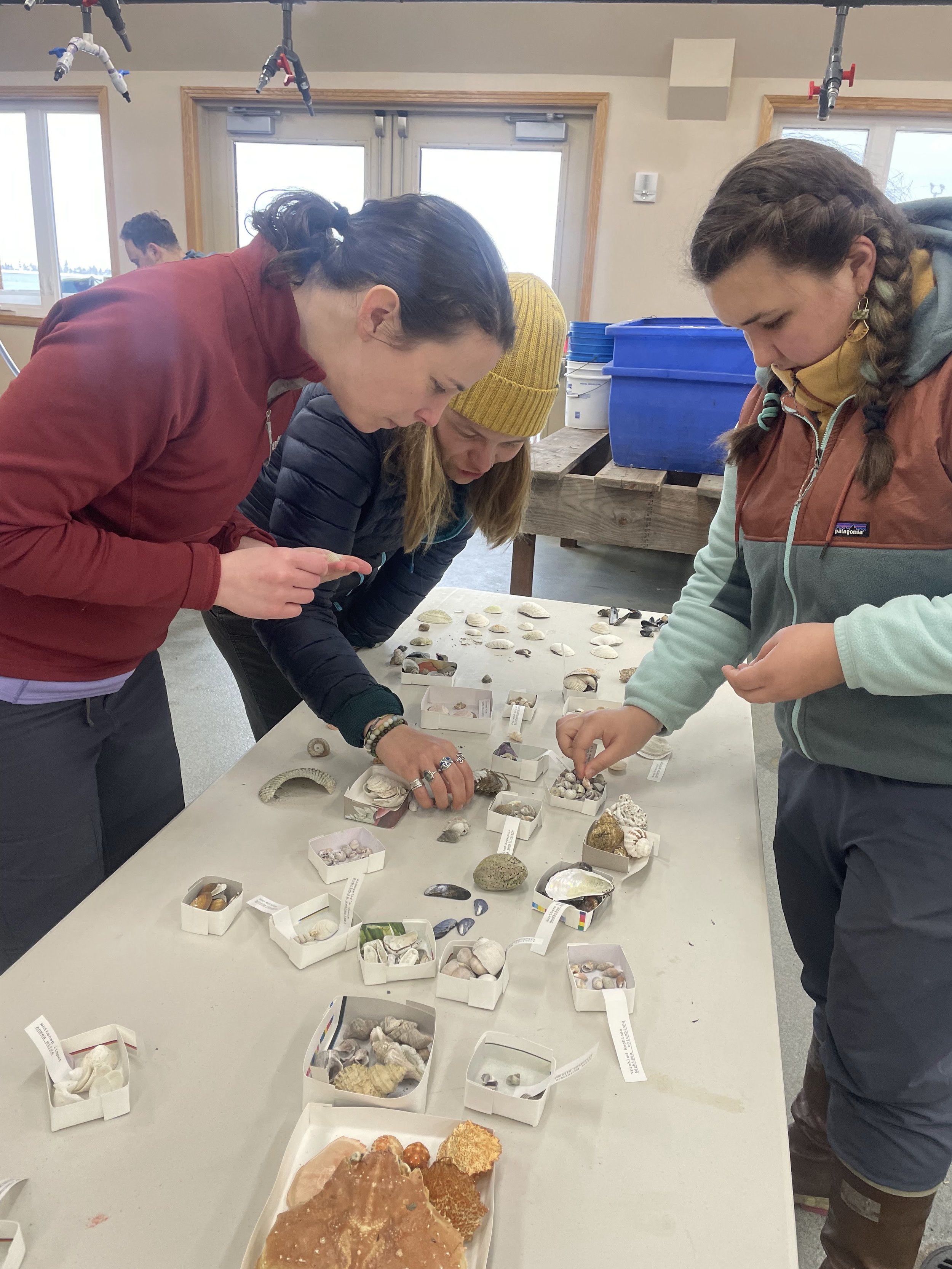
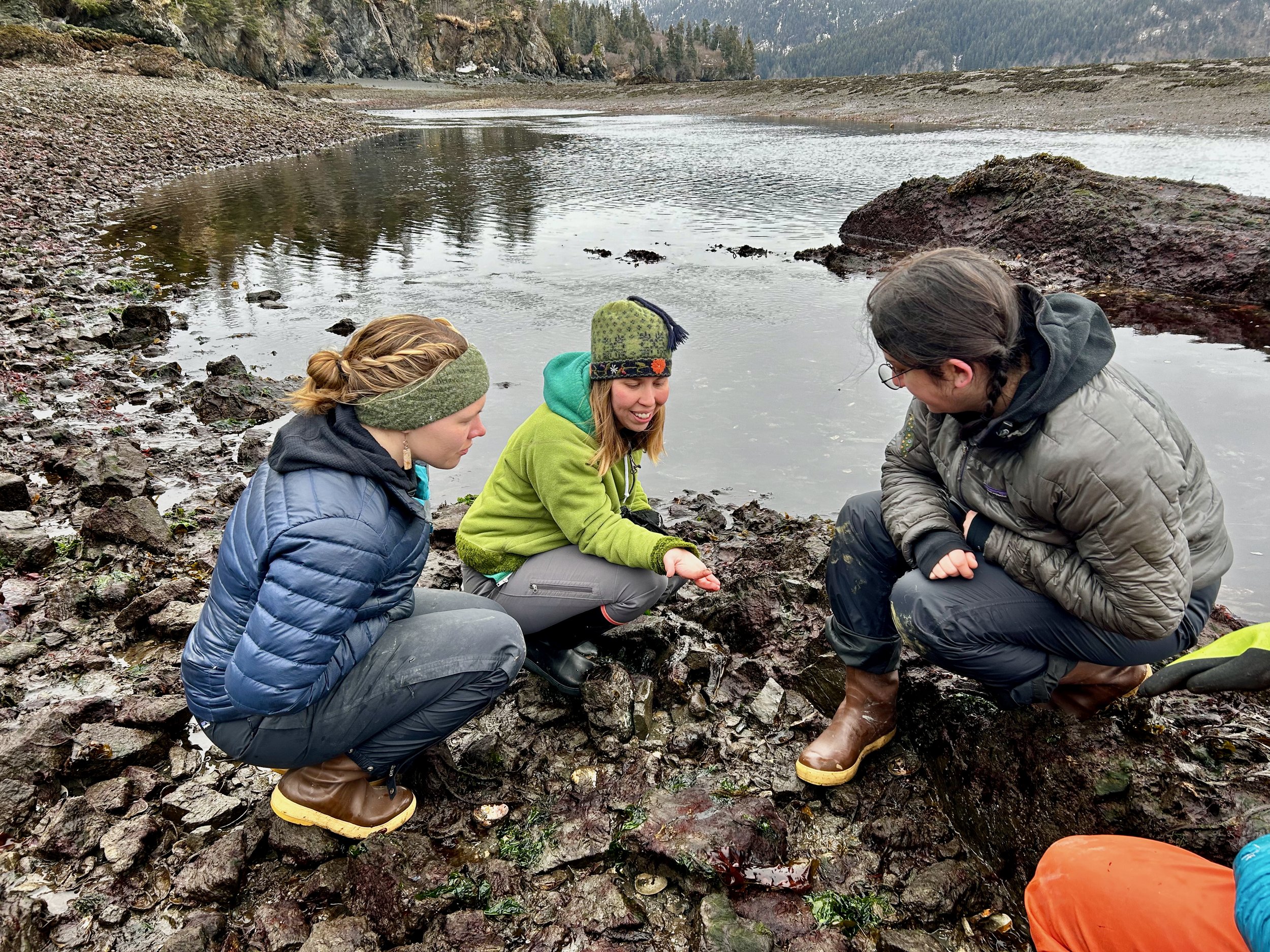
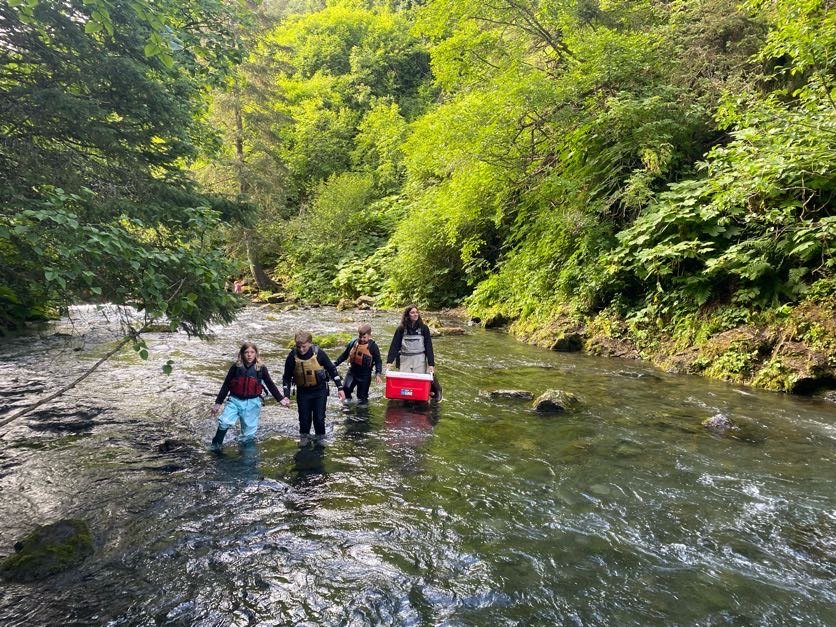

Equal Opportunity Employer & Equity Statement
The Center for Alaskan Coastal Studies recruits, employs, trains, compensates and promotes regardless of race, religion, color, national origin, sex, disability, age, class, veteran status and other protected status as required by law.
We recognize that the field of environmental education has long excluded Black, Indigenous, and People of Color as well as people from working class backgrounds, people with disabilities, and other marginalized groups.
We also recognize that environmental injustice and climate change disproportionately impact the most marginalized people in society— including People of Color, Indigenous people, people from working class backgrounds, women, and LGBTQIA+ people.
We know that the land we teach on has long been, and continues to be, stewarded by Alaska Native peoples—particularly the Sugpiaq and Dena’ina—for countless generations. We acknowledge that colonization has resulted in harmful changes in land stewardship and education that has excluded Indigenous people and traditional perspectives from environmental education.
We believe that these communities must be centered in the work we do and that environmental education will be stronger and richer with more diverse perspectives.
We welcome your unique skills, cultural perspectives and strengths, and recognize how they benefit our community.

